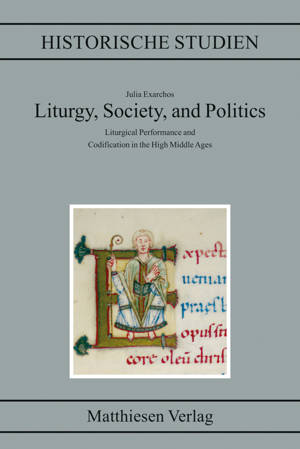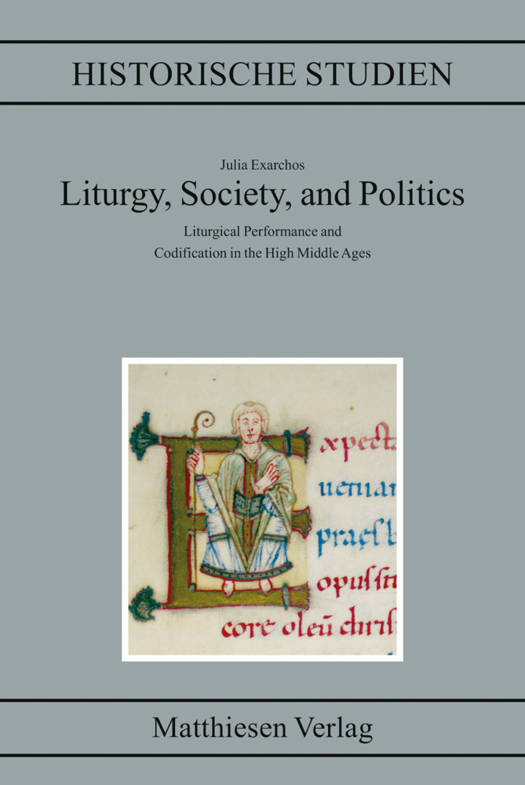
En raison d'une grêve chez bpost, votre commande pourrait être retardée. Vous avez besoin d’un livre rapidement ? Nos magasins vous accueillent à bras ouverts !
- Retrait gratuit dans votre magasin Club
- 7.000.000 titres dans notre catalogue
- Payer en toute sécurité
- Toujours un magasin près de chez vous
En raison de la grêve chez bpost, votre commande pourrait être retardée. Vous avez besoin d’un livre rapidement ? Nos magasins vous accueillent à bras ouverts !
- Retrait gratuit dans votre magasin Club
- 7.000.0000 titres dans notre catalogue
- Payer en toute sécurité
- Toujours un magasin près de chez vous
Liturgy, Society, and Politics
Liturgical Performance and Codification in the High Middle Ages
Julia Exarchos
48,45 €
+ 96 points
Description
Die Untersuchung widmet sich der Bedeutung der Liturgie in der mittelalterlichen Gesell- schaft. Wurden Liturgie und liturgische Texte in geschichtswissenschaftlichen Studien bisher überwiegend hinsichtlich ihrer theologischen und liturgiepraktischen Bedeutung untersucht, legt diese Studie den Schwerpunkt auf die politische und soziale Bedeutung von Liturgie und ihren Texten. Im Zentrum stehen dabei sowohl die liturgischen Handlungen selbst wie auch die komplexen Kodifizierungsprozesse liturgischer Rituale. Anhand von Einzelstudien und unter Heranziehung eines diversen, teilweise unedierten Quellenkorpus illustriert die Studie, wie Liturgie und ihre Kodifizierung von (lokalen) sozialen und politischen Faktoren beeinflusst und wie liturgische Texte bewusst für bestimmte politische Agenden verwendet wurden. Damit hinterfragt die Arbeit traditionelle Sichtweisen auf liturgische Texte, vor allem auf Pontifikalien, und plädiert für eine Erweiterung ihrer Verwendungszwecke.The book addresses the significance of the liturgy in medieval society. While historical studies of the liturgy and liturgical texts have up until now focused predominantly on their theological and practical liturgical context, this investigation turns to examine the political and social significance of the liturgy and its texts. The study explores both the liturgical acts themselves and the complex codification of liturgical rituals. Using case studies and a diverse, partially unedited corpus of sources, the book illustrates how the liturgy and its codification were influenced by (local) social and political factors and how liturgical texts were deliberately used for specific political agendas. It thus questions traditional views on liturgical texts, especially on pontificals, and advocates an expansion of their uses. The study thus contributes to a deeper understanding of the complexity of the liturgy in medieval society and demonstrates how valuable the inclusion of the liturgy and its texts can be for the examination of the wider medieval social and political contexts.
Spécifications
Parties prenantes
- Auteur(s) :
- Editeur:
Contenu
- Nombre de pages :
- 359
- Langue:
- Anglais
- Collection :
- Tome:
- n° 516
Caractéristiques
- EAN:
- 9783786815167
- Date de parution :
- 18-01-22
- Format:
- Livre relié
- Dimensions :
- 161 mm x 33 mm
- Poids :
- 736 g

Les avis
Nous publions uniquement les avis qui respectent les conditions requises. Consultez nos conditions pour les avis.






